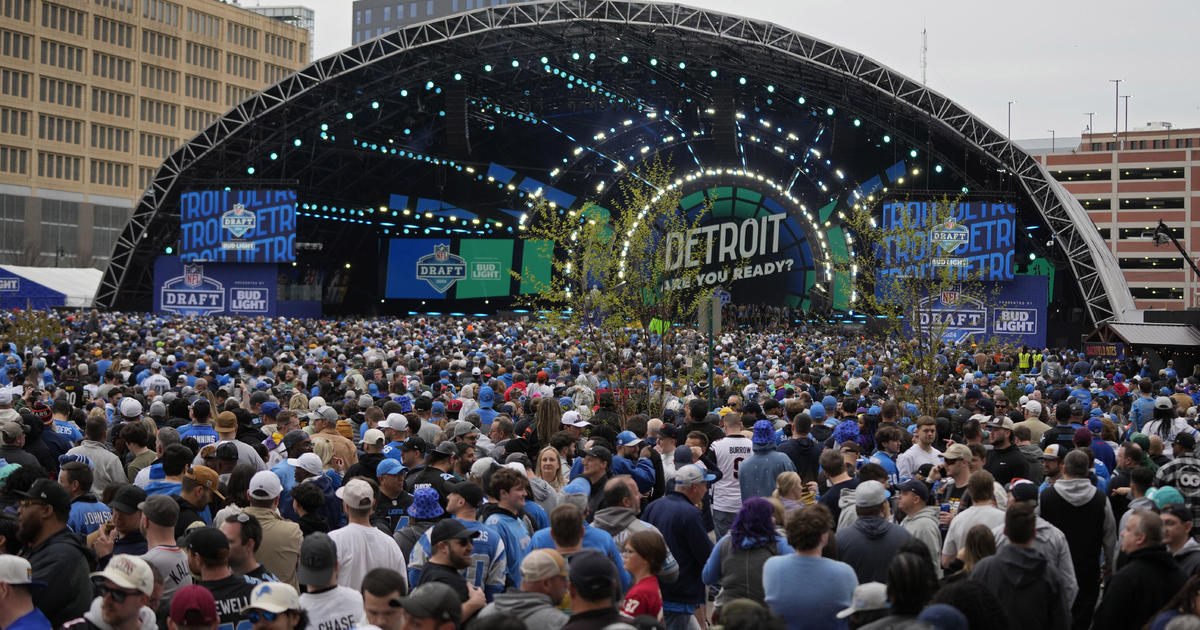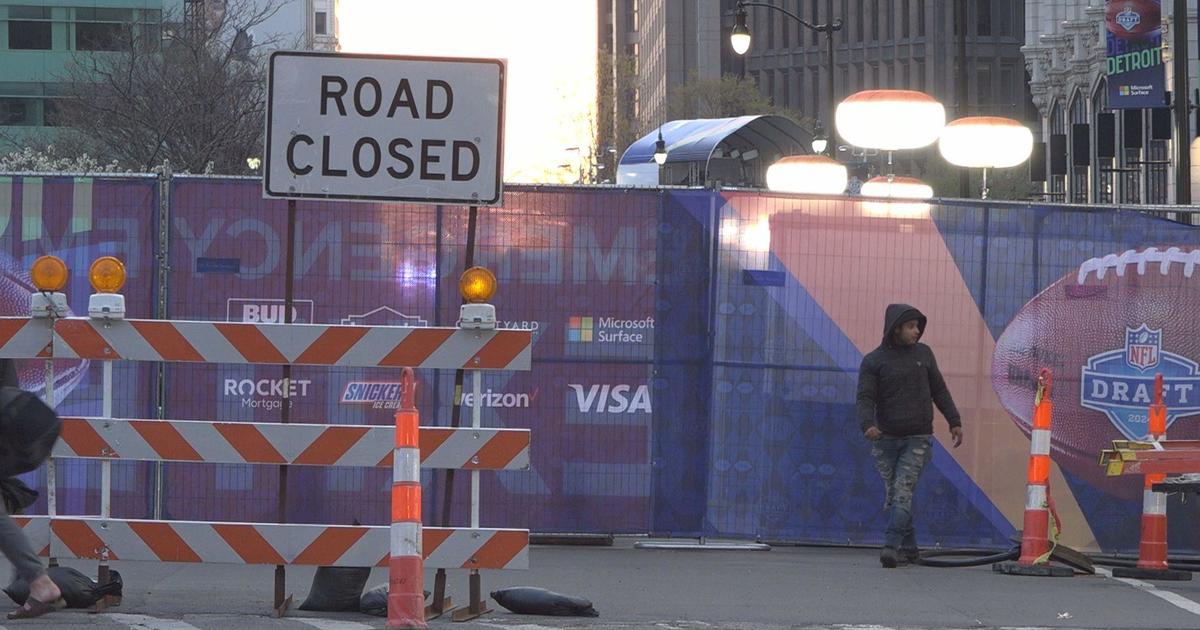Detroit EM Releases Financial Plan; City Exceeding Budget By $100M Annually
DETROIT (WWJ/AP) - Detroit is broke.
That's the gist of a new report from the city's emergency manager, Kevyn Orr, who is officially presenting his financial plans for the city on Monday.
Talking exclusively to WWJ City Beat Reporter Vickie Thomas ahead of the report's public release, he said some of key issues plaguing the city include deficit, cash flow and debt, as well as blight.
Orr's report shows that since 2008, the city's spending exceeded its budget by about $100 million annually. It also states that Detroit borrowed $80 million last March to avoid running out of money.
"This has been a moving target. The historical numbers that have been reported were unreliable," bankruptcy expert Doug Bernstein said. "Certainly, nobody was going to expect the numbers were to be better than were reported."
Orr described the city's operations as "dysfunctional and wasteful after years of budgetary restrictions, mismanagement, crippling operational practices and, in some cases, indifference or corruption."
"Outdated policies, work practices, procedures and systems must be improved consistent with best practices of 21st century government," he said in the report. "A well run city will promote cost savings and better customer service and will encourage private investment and a return of residents."
The report also looked at attempts officials have made to fix problems.
"Recently, tens of millions of dollars of pension funding and other payments have been deferred to manage a severe liquidity crisis at the City," Orr wrote in the report. "Even with these deferrals, the City has operated at a significant and increasing deficit. It is expected that the City will end this fiscal year with approximately $125 million in accumulated deferred obligations and a precariously low cash position."
Orr says in the report that reviews and restructuring plans for the Detroit police, fire and EMS departments are ongoing, as are reviews for the transportation, recreation and public lighting departments.
"I'm going to try to lay out as much as I can in terms of some of the summaries we've concluded in the summary stage - at the beginning of it," Orr said.
[READ AN ADVANCE COPY OF THE REPORT]
As for public reaction to the report, Orr says he isn't worried.
"The public can comment, but it is under the statute, it is my plan and it's within my discretion and obligation to do it. This isn't a plebiscite, we are not, like, negotiating the terms of the plan. It's what I'm obligated to do," he said.
"Thirty days thereafter, I need to sit for a public meeting to go through it in detail with the public and anyone else who is interested," Orr said. " So that they will have a chance to digest it, have a chance to understand it, and I can explain it. It's probably going to be a little dense for lay people to understand if I am going to try to lay out as much as I can in terms of some of the summaries we've concluded."
He told WWJ that the city is bleeding much more red ink than originally thought.
"The situation is severe," Orr said. "It's worse that we originally thought. It ain't good."
In the report, Orr uses charts and graphs to paint the bleak picture of the city's finances, including over $15 billion in long-term debt and an accumulated operating deficit of $325 million.
The city also owes more than $400 million in outstanding obligations, including $124 million used to provide funds for public improvement projects.
Orr's report identifies areas of concern and those needing immediate attention.
It's highly likely he will seek concessions from the city's labor unions. At least five unions representing police and firefighters are seeking arbitration in collective bargaining with the city.
Detroit lacks, but is developing a "comprehensive labor strategy for managing" its relationships with its unions, according to Orr.
The emergency manager law gives Orr the authority to "reject, modify or terminate" collective bargaining agreements and concessions will be sought, he wrote in the report.
"This power will be exercised, if necessary or desirable, with the knowledge and understanding that many city employees already have absorbed wage and benefit reductions," he wrote.
When taking the job, Orr said he hoped to avoid a municipal bankruptcy filing, but didn't rule one out if Detroit can't reach agreements with its many creditors and bond holders.
"If he already hasn't, he should continue negotiating for savings necessary in collective bargain," said Bernstein, a managing partner of the Banking, Bankruptcy and Creditors' Rights Practice Group for the Michigan-based Plunkett Cooney law firm. "He has to negotiate reductions with bond holders and get as many concessions as he can. It's an across-the-board savings.
"If he can't get everything completed by consent, then there is no option but bankruptcy. It should be a last resort. It should be used sparingly. It is an option. When all else fails, that's the last tool in the tool box."
The report also notes the instability in leadership atop the city's police department. Detroit has had five different police chiefs over the past five years with varying plans on how to best handle the city's high crime rate.
"As a result, (the department's) efficiency, effectiveness and employee morale are extremely low," Orr wrote. "Based on recent reviews ... and input from the Michigan State Police and other law enforcement agencies, it is clear that improvements in DPD's operations and performance could be achieved through the strategic redeployment of resources, civilianization of administrative functions, other labor efficiencies and revenue enhancements."
The department also could benefit from more and better technology, equipment, police cars and personnel.
Orr said he isn't ruling out bankruptcy for the city just yet.
"We've been collecting operating deficits at about $18 million to $20 million a year. That's nobody's fault, I think, frankly, the mayor and the council has done the best they can with what they have," Orr said . "The city has probably cut as much as it can cut to the bone now, and so its been trying to operate on the basis of borrowing short-term loans all the time."
Meantime, the Detroit branch of the NAACP is challenging the constitutionality of PA 436 -- the statute that created the emergency manager position. Representatives were expected to meet Monday morning at the federal courthouse in Detroit to file the formal paperwork that seeks to remove Orr.
The latest version of the state's Emergency Manager Law, in effect since March 28, has been subject to several challenges. Some are arguing violations of voters' rights and the weakening of collective bargaining.
MORE: Kevyn Orr: Detroit Is In Worse Shape Than I Thought
(TM and © Copyright 2013 CBS Radio Inc. and its relevant subsidiaries. CBS RADIO and EYE Logo TM and Copyright 2013 CBS Broadcasting Inc. Used under license. All Rights Reserved. This material may not be published, broadcast, rewritten, or redistributed. The Associated Press contributed to this report.)



